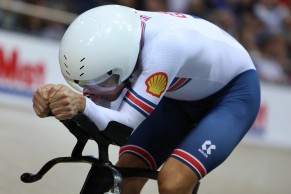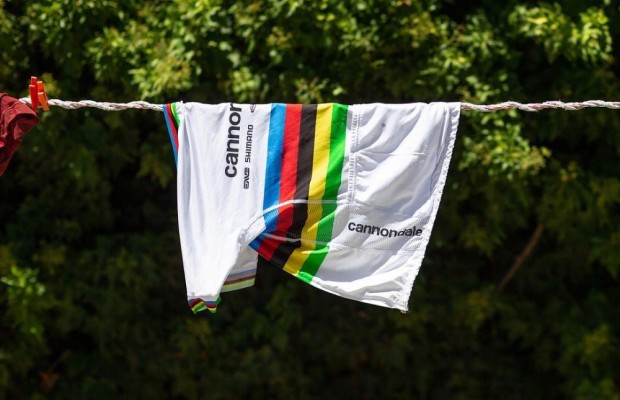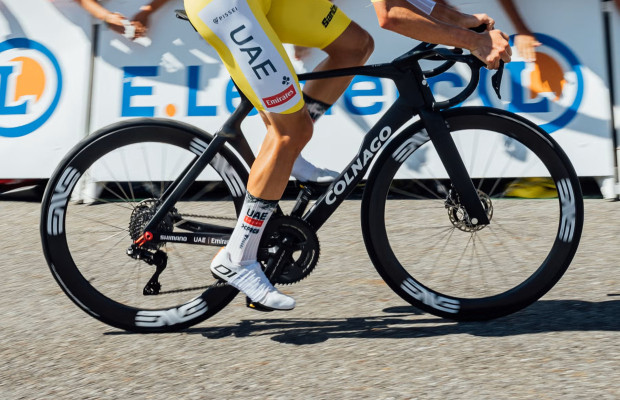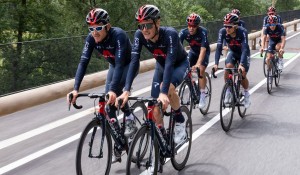Oil companies set their eyes on cycling
The rumours of the arrival of Repsol or the already confirmed sponsorship of Shell to British Cycling are added to INEOS or TotalEnergies, although it is not entirely clear what kind of revenues the oil companies are looking for in the cycling world or if it is just a mere image washing operation.

Cycling welcomes oil money with open hands
In recent weeks, we have been hearing rumours, denied by the team, that Repsol would join the Movistar team's roster of sponsors next year.
We have also seen in the last week the announcement by British Cycling of its sponsorship agreement for the next 8 years with the oil company Shell with the argument that it is part of its plan to reach zero emissions by 2050.
RECOMENDADO

The best apps for cycling and mountain biking

Black Friday Garmin 2025: the ultimate guide to choosing your GPS at the best price

How to wash your cycling clothes? 10 keys to make them always look new

The real importance of signing up for a race

The best road bikes of 2025

The best gravel groupsets of the moment

The arrival of Shell, as happened in 2019 with the arrival of INEOS as the main backer of the former Sky team, one of the most powerful squads on the cycling scene, has not been exempt from criticism from environmentalists who see in these moves a mere greenwashing manoeuvre of the activities of these companies, historically linked not only to climate change, blamed largely on the consumption of fossil fuels, but also to various environmental disasters.
In fact, the intense protest campaign carried out by environmental groups when the arrival of INEOS became known is well remembered and had its maximum expression in the premiere of this sponsorship during the Tour of Yorkshire. Especially when one of the last campaigns that the team carried out under the name of Sky referred to the fight against the presence of plastics in the oceans.

A policy in which not only INEOS or Shell seem to have coincided. We must also include TotalEnergies, which focuses its advertising associated with cycling on sponsoring, in addition to the French professional team, different cycling events in which they also try to attract new customers for their gas and electricity supply offers, and where, of course, there is no lack of solar energy, the escape route that many of these companies are finding in the face of the incipient loss of relevance and bad image of fossil fuels.
Although they are not oil companies per se, black gold money is also present in the teams Bahrain Victorious and the all-powerful UAE Team Emirates, both of which owe their economic muscle to the crude oil hidden beneath the soil of these small territories.
We cannot forget the now infamous, because of its Russian origin, Gazprom, which until the recent war in Ukraine was the main sponsor of one of the leading teams in the Pro Team category, the second tier of cycling.

However, if we move to the point of view of the cycling world, it does not seem to matter too much that the source of this important economic injection is the consumption of fossil fuels.
In a sport that has historically been squeezed by economic needs, always in the shadow of other more professionalised fields such as football and with rising costs, any money that comes in and allows the best riders on the market to be signed is welcome.
Environmental awareness is not very prevalent in the sport either, especially if we consider that attitudes such as throwing empty jerry cans into the roadside or the wrappers of the bars and gels with which cyclists recover their strength during races have not been reprehensible actions until very recently.

On the other hand, the use of electric vehicles in the large caravans that accompany the races is something that, for the moment, is not even being considered given the long journeys that they are forced to make, which not only involve the distance of the stages but also the often extensive transfers from one stage to another.
In any case, the arrival of money from oil companies in cycling, beyond the reasons behind it, has served to raise the economic bar of this sport, which on the one hand will serve to set up teams with greater power and, on the other hand, as usually happens in these cases, will probably mean an increase in the differences between the squads that do have access to these millionaire sponsorships and those that do not.